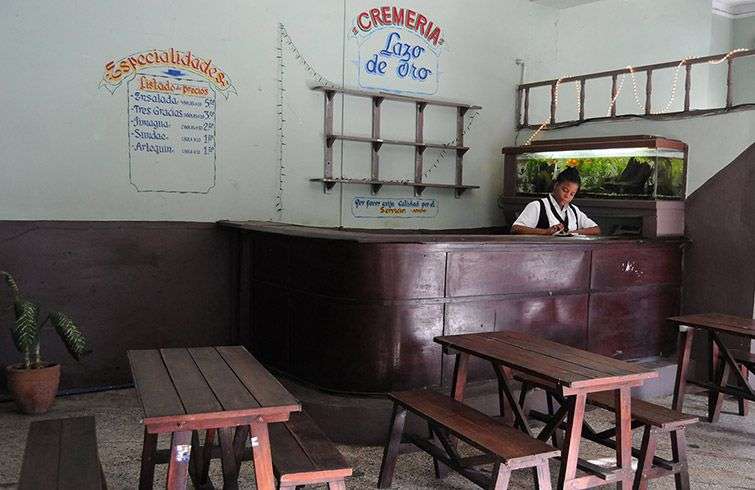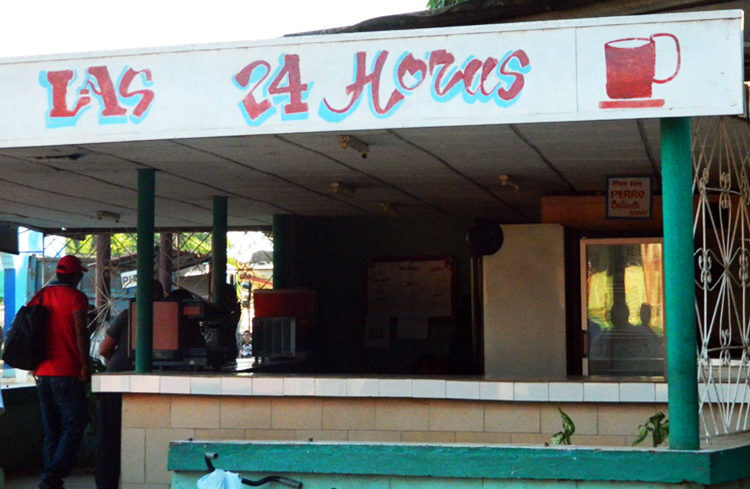La Rusa knows no other trade, has no experience in other workplace having worked as a gastronomic since she was 16 years old, and already accumulates another 30 behind counters. So this woman is no stranger to any secret of her business, or the convoluted paperwork of the warehouse or recurrent variants to augment product lists and pockets.
La Rusa does not like to talk about theft because she ensures that “since the counter is little or nothing that you can steal” because the products have to be on display with prices, which the inspectors that periodically visit state cafes always review. “If they find problems with the prices the fine is for sure, although with most that can be arranged with 20 or 30 dollars.”
The issue price is not profitable. Alter them is to encourage inspectors that show up like vultures coming to celebrate with the decomposed corpse. “Changing them is very risky because of the issue of inspections, so it is best to bring goods from outside.”
La Rusa notes that in this sense there are other areas where theft is more direct, such as food processing and bulk sales, because with one egg you make two omelets, or of a hamburger they make two; besides the weight, because you never give the correct weight in meats. Although the “lack” of change is often another common practice.
“But it’s natural to buy various products with our money and sell them a little more expensive here to have gains,” she says. As of the mechanism she says is simple: search cheaper products in markets and then sell them in cafeterias at the price established in them, which is higher.
“For example, a bottle of soda cost us between 25 and 30 CUP, and here’s to 1.55 CUC (38.75 CUP at current exchange rates); or when some products (Ciego Montero canned soda) enters at the domestic currency price of 10 pesos (CUP) we do not put it that way, but we sell them in foreign currency (CUC) at 55 cents -13.75 CUP “she explains.
Similarly, there are regular suppliers that bring fresh and good quality goods at low prices. “The truck people (the name given to those that carry the goods in SOEs trucks) often bring more products and they sell direct to the clerks to sneak them among those for sale.”
However, La Rusa also recognizes that in this business everyone has their own plot. Managers do not get involved with the employees, because they themselves have received the merchandise and its variants, but somehow everyone has a “way”. “Yes, every turn brings their own goods to sell, it is not something done in a group.”
When speaking of control La Rusa barely smiles. Her world is rotten to the ground; it is a continuous cycle of bribery that keeps things as they are. There is an inviolable and accepted structure: clerks bribe inspectors and managers “give every month a lot of money” to the heads of basic units to keep the job and ensured impunity in control.
“There are no exceptions. No matter whether they are in the State Board of Commerce (DEC), the Department of Inspector and Supervisors (DIS) or Public Health … all enter into arrangements with us and the only way to keep them away from this place is paying what they ask at each visit. ”
But there will be some clue, some phrases to communicate without falling into evidence, right?
“Not at all, everyone is here so muddy that no one cares. They arrive, detect deficiencies and they ask for money, that’s their business. ”
In gastronomy everyone knows everyone, and all have found their way to supplement low wages (clerks only make 250 CUP month), one way or another. “They say that we will now pay as we sell, we do not know what will happen with that, because the truth is that the supply issue is pretty bad” reasons la Rusa, who has long stopped caring about wages.











